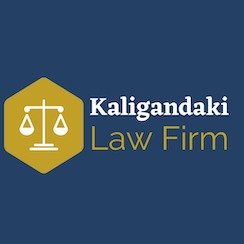Best Birth Injury Lawyers in Nepal
Share your needs with us, get contacted by law firms.
Free. Takes 2 min.
Or refine your search by selecting a city:
List of the best lawyers in Nepal
About Birth Injury Law in Nepal
Birth injury refers to physical harm or damage suffered by a newborn during the delivery process. In Nepal, birth injuries can occur due to various reasons including medical negligence, lack of proper prenatal care, or inadequate facilities. The legal framework in Nepal addresses these issues through medical malpractice laws which aim to protect the rights of newborns and their families. While the awareness regarding birth injuries is gradually increasing, there remains a significant need for legal support to navigate the complexities of such cases.
Why You May Need a Lawyer
Families dealing with the aftermath of a birth injury may face overwhelming medical bills, emotional distress, and long-term care responsibilities. Common situations where legal help might be necessary include:
- Suspected medical negligence during childbirth.
- Disputes with healthcare providers or hospitals regarding injury claims.
- Guidance on obtaining compensation for medical expenses and emotional suffering.
- Ensuring the child's rights are protected and advocated for within the legal system.
Local Laws Overview
Nepalese laws relevant to birth injuries primarily fall under the domain of medical negligence and malpractice. Key legal aspects include:
- The Consumer Protection Act, 1998: This act provides a legal framework for addressing claims of malpractice or negligence against healthcare providers.
- The National Civil Code, 2017: It outlines the liabilities associated with medical professionals and institutions in cases of proven negligence leading to harm.
- The Constitution of Nepal: Emphasizes the right to health care as a fundamental right, supporting claims of negligence.
Frequently Asked Questions
What constitutes a birth injury?
A birth injury is any harm that occurs to a newborn during childbirth. This can include physical injuries or neurological damage.
How is medical negligence determined in birth injury cases?
Medical negligence is determined through a legal investigation comparing the actions of healthcare providers against established medical standards.
Can I sue the hospital or doctor responsible for the birth injury?
Yes, if the injury was caused due to negligence or improper care, legal action can be pursued against the responsible medical professional or institution.
What compensation can I expect from a successful birth injury claim?
Compensation may cover medical expenses, rehabilitation costs, emotional distress, and any ongoing care needs for the child.
How long do I have to file a birth injury lawsuit in Nepal?
Typically, you should file within a year from the date you become aware of the injury, but it's crucial to consult a lawyer for precise timelines.
Do I need medical records to prove a birth injury claim?
Yes, medical records, along with expert testimonies, are essential to substantiate claims of birth injuries and negligence.
Can birth injury claims be settled out of court?
Yes, many such claims are settled out of court through negotiations or mediation to reach a fair resolution.
What should I do if I suspect a birth injury caused by negligence?
Immediately seek a specialized lawyer’s advice to evaluate the situation and guide you accordingly on how to proceed with a claim.
How can a lawyer assist in a birth injury case?
A lawyer can help collect evidence, provide expert consultations, navigate legal processes, and advocate for the child’s rights and compensation.
Are there specialists in birth injury law in Nepal?
Yes, there are legal professionals who specialize in medical malpractice and are skilled in handling birth injury cases.
Additional Resources
When seeking further information on birth injury legal matters in Nepal, consider reaching out to the following resources:
- The Nepal Bar Association for lawyer recommendations.
- The Ministry of Health and Population for health-related regulations and statistics.
- Non-governmental organizations focusing on health rights and legal aid, such as Legal Aid Nepal.
Next Steps
If you suspect a birth injury due to medical negligence, start by consulting a specialized lawyer to discuss your case specifics. Prepare all medical records, and document any communications with healthcare providers. Consider reporting the incident to relevant medical boards or authorities. Stay informed about your rights and seek support from legal and health advocacy groups to ensure comprehensive guidance and support throughout the process.
Lawzana helps you find the best lawyers and law firms in Nepal through a curated and pre-screened list of qualified legal professionals. Our platform offers rankings and detailed profiles of attorneys and law firms, allowing you to compare based on practice areas, including Birth Injury, experience, and client feedback.
Each profile includes a description of the firm's areas of practice, client reviews, team members and partners, year of establishment, spoken languages, office locations, contact information, social media presence, and any published articles or resources. Most firms on our platform speak English and are experienced in both local and international legal matters.
Get a quote from top-rated law firms in Nepal — quickly, securely, and without unnecessary hassle.
Disclaimer:
The information provided on this page is for general informational purposes only and does not constitute legal advice. While we strive to ensure the accuracy and relevance of the content, legal information may change over time, and interpretations of the law can vary. You should always consult with a qualified legal professional for advice specific to your situation.
We disclaim all liability for actions taken or not taken based on the content of this page. If you believe any information is incorrect or outdated, please contact us, and we will review and update it where appropriate.
Browse birth injury law firms by city in Nepal
Refine your search by selecting a city.









